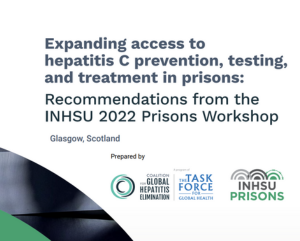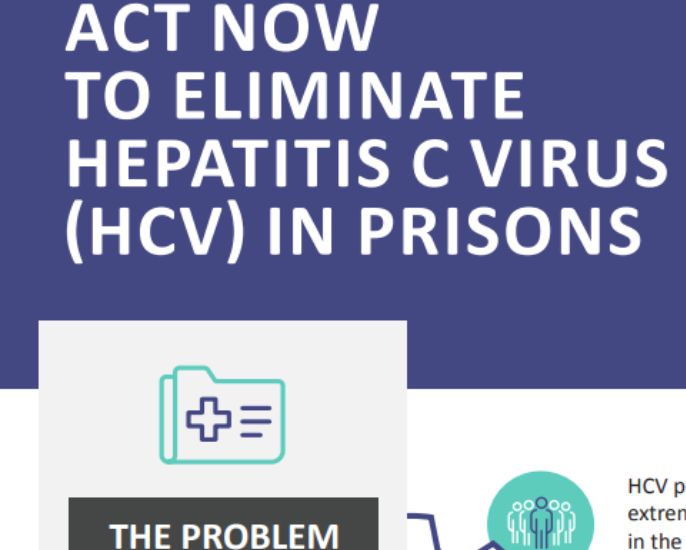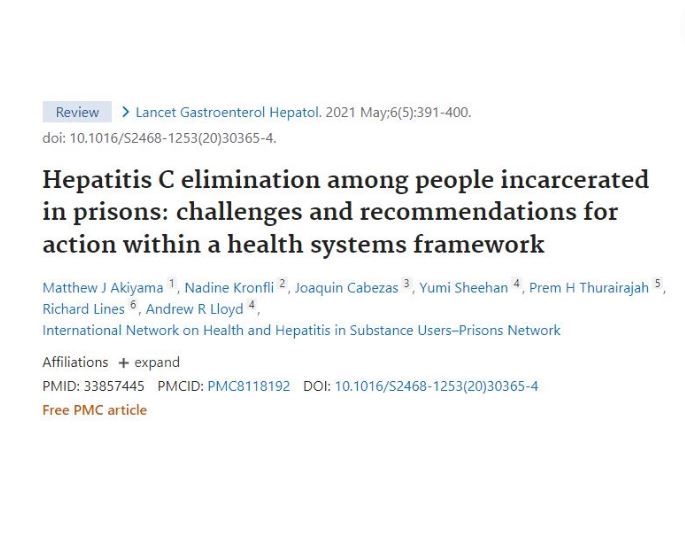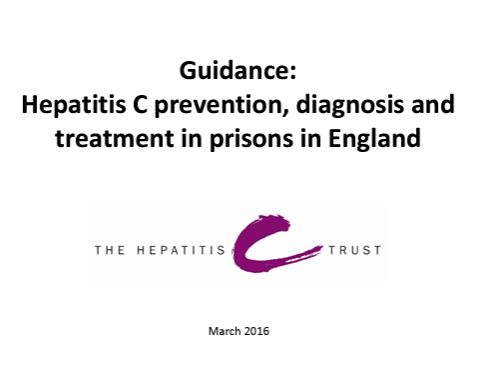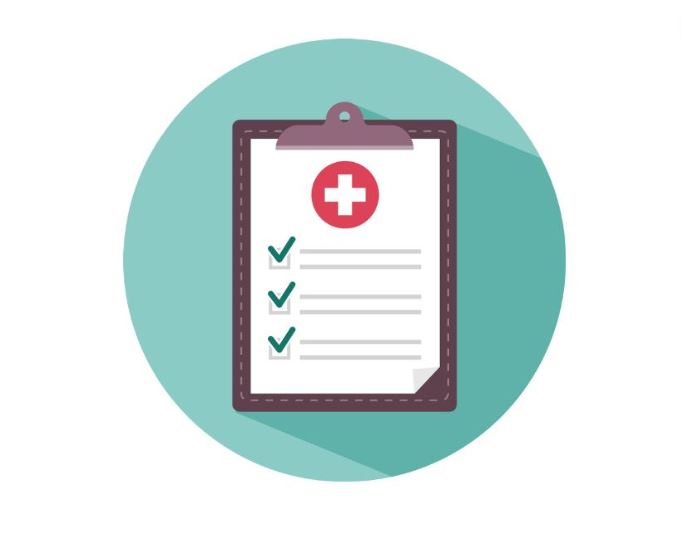The International Network on Health and Hepatitis in Substance Users – Prisons Network (INHSU Prisons), is a special interest group of INHSU for members who would like to participate in scientific knowledge and information exchange, knowledge translation, and advocacy for enhanced hepatitis care in custodial settings.
The group was established in 2019 and held its inaugural annual workshop in association with INHSU 2019 in Montreal. Formed to connect the global community working to enhance access to hepatitis care for people in prisons, INHSU Prisons brings together researchers, practitioners, policymakers, advocates and affected communities to improve the health of people in custodial settings.
Why we need INHSU Prisons
 In 2014, it was estimated that at any one time, more than 10 million individuals were held in custodial settings globally. Of this population, it was estimated that 15%, or 1.5 million individuals, were affected by chronic hepatitis C (HCV) infection, with the overwhelming majority infected via injecting drug use. As there is a close relationship between imprisonment, injecting drug use, and HCV, in any given year, more than 3 million individuals with chronic HCV spend time in prison globally. This group is likely to constitute one of the most marginalised patient groups affected by HCV, who are less likely to access health services in any other setting. In addition, this group features high rates of ongoing HCV transmissions, occurring both in prison and in the community following release.
In 2014, it was estimated that at any one time, more than 10 million individuals were held in custodial settings globally. Of this population, it was estimated that 15%, or 1.5 million individuals, were affected by chronic hepatitis C (HCV) infection, with the overwhelming majority infected via injecting drug use. As there is a close relationship between imprisonment, injecting drug use, and HCV, in any given year, more than 3 million individuals with chronic HCV spend time in prison globally. This group is likely to constitute one of the most marginalised patient groups affected by HCV, who are less likely to access health services in any other setting. In addition, this group features high rates of ongoing HCV transmissions, occurring both in prison and in the community following release.
Despite a heightened need for HCV care, delivery of health services in the prison context is uniquely challenging, as prisons feature a complex nexus of custodial and health bureaucratic structures, overcrowding and frequent movements, and the prisoner population features high rates of mental illness, and exposure to violence and illicit drugs. In relation to HCV, the key elements of evidence‐based harm reduction measures are largely absent from the prison sector worldwide – notably opioid agonist therapies (OAT), and needle‐syringe programs (NSP). Furthermore, HCV testing is highly variable, access to direct‐acting antivirals (DAAs) is rare, and the prison‐based health infrastructure for overall health care is generally limited.

Behind the Research Webinar
Thursday, 9th May 2024: Join INHSU Prisons for a virtual event where we welcome authors from research papers highlighted in the Annual INHSU Prisons Bibliography 2023. These papers were considered to be of ‘outstanding’ or ‘exceptional’ interest by the INHSU Prisons Executive Committee.

INHSU Prisons 2023 workshop report
At the INHSU 2023 annual conference held in Geneva, Switzerland, INHSU Prisons convened an interactive workshop sharing global best practice for scaling up HCV testing, treatment, and prevention services in prisons. This report summarises the day’s findings, including best practice case studies, practical reccomendations, and advocacy reccomendations for low-middle-income countries.

INHSU Prisons Hypothetical session
At the INHSU 2023 annual conference held in Geneva, Switzerland, INHSU Prisons held a ‘Hypothetical’ style session, which followed the hypothetical journey of a person as they progress through the HCV testing and treatment cascade of care in prison.

INHSU Prisons bibliography 2023
Each year, the INHSU Prisons Executive Committee collates the list of all prison-focused hepatitis C research published in the calendar year and votes on those they consider to be of outstanding and special interest. 2023’s bibliography is now available. The INHSU Prisons Executive Committee would like to congratulate everyone who has published papers this year for their commitment to producing exceptional research in carceral settings globally.
Our goals
- Facilitate information exchange at the international level to enhance the capacity of prison-based health systems for HCV prevention and care
- Develop prison-focused HCV education programs adapted to diverse prison settings worldwide
- Facilitate translation of health services research to support advocacy and drive policymaking, to improve HCV prevention and care efforts in prisons
Get involved
All members of INHSU with an interest in HCV care in prisons are invited to join INHSU Prisons. Update your details in the membership portal or email us on [email protected]. If you’re not yet a member of INHSU, you can join here and tick ‘yes’ to INHSU Prisons during the signup process.
Contact INHSU Prisons: email INHSU Secretariat [email protected]

Past events and activities
INHSU Prisons holds an annual workshop adjacent to INHSU conferences each year. INHSU Prisons also hosts prison-focused sessions during the INHSU conference, with invited speakers and selected oral presentations on topics relevant to hepatitis care in the prison setting. Here you will find documents relating to our past events.
- 2023: Key takeaways from INHSU 2023 prison sessions
- 2023: Behind the research webinar
- 2022: INHSU Prisons workshop, Glasgow, Scotland
- 2021: Global debate: conducting research in prisons
- 2021: Speed Geeking Europe
- 2021: Speed Geeking North America
- 2020: INHSU Africa: Spotlight on prison-focused work
- 2019: INHSU Prisons Inaugural Annual Workshop
- 2019: Conference Session P: Prisons
INHSU Prisons is led by an Executive Committee
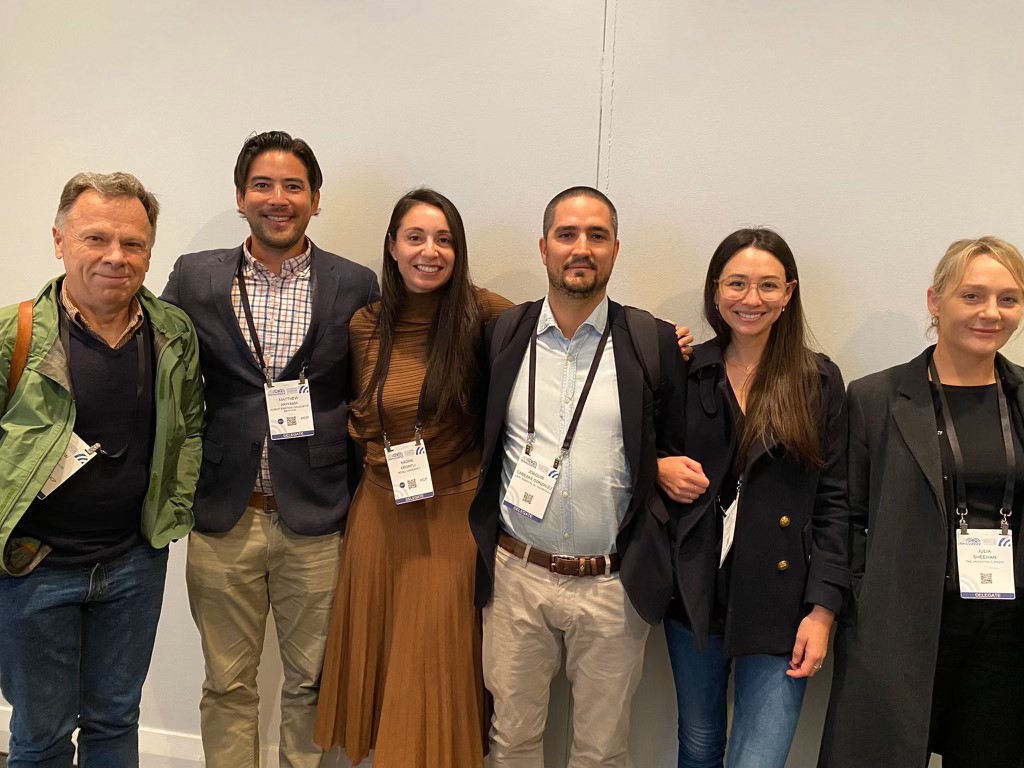
- Chair: Professor Andrew Lloyd, Australian National Prisons Hepatitis Network / The Kirby Institute UNSW Sydney, Australia
- Vice-Chair: Dr Matthew Akiyama, Albert Einstein College of Medicine / Montefiore Medical Centre, New York, USA
- Vice-Chair: Dr Joaquin Cabezas, Marques de Valdecilla University Hospital, Santander, Spain
- Vice-Chair: Dr Nadine Kronfli, McGill University Health Centre, Montreal, Quebec, Canada
- Early Career Representative: Yumi Sheehan, Australian National Prisons Hepatitis Network / The Kirby Institute UNSW Sydney, Australia
- Julia Sheehan, The Hepatitis C Trust, London, United Kingdom
- Nonso B.C Maduka, Bensther Development Foundation, Nigeria

